
A vigorous performance by Charles Gayle (saxophone, clarinet, voice), Michael Bisio (bass) and Michael Wimberly (drums) that was recorded live in 1994 and features lively gospel music.
Out of Stock
Quantity in Basket: None
Log In to use our Wish List
Shipping Weight: 4.00 units
Sample The Album:
Charles Gayle-tenor saxophone, bass clarinet, vocals
Michael Bisio-bass
Michael Wimberly-drums
Click an artist name above to see in-stock items for that artist.
UPC: 825481040709
Label: ESP-Disk
Catalog ID: ESPDISK 4070CD
Squidco Product Code: 16932
Format: CD
Condition: New
Released: 2012
Country: USA
Packaging: Digipack
Recorded live on September 19th, 1994 in Santa Monica, CA.
"For his first release for ESP-Disk, we present a 1994, HIGH ENERGY performance of Charles Gayle recorded live in Santa Barbara, California playing total FIRE MUSIC. The unique complementary nuance of the group brings forth (5) incredible performances featuring Charles playing tenor sax, bassist Michael Bisio and drummer Michael Wimberly. Liner notes are written by journalist Russ Musto."-ESP

The Squid's Ear!
Artist Biographies
• Show Bio for Charles Gayle "Charles Gayle (born February 28, 1939) is an American free jazz musician. Initially known as a saxophonist who came to prominence in the 1990s after decades of obscurity, Gayle also performs as pianist, bass clarinetist, bassist, and percussionist. Charles Gayle was born in Buffalo, New York. Some of his history has been unclear due to his reluctance to talk about his life in interviews. He briefly taught music at the University at Buffalo before relocating to New York City during the early 1970s. Gayle was homeless for approximately twenty years, playing saxophone on street corners and subway platforms around New York City. He has described making a conscious decision to become homeless: "I had to shed my history, my life, everything had to stop right there, and if you live through this, good, and if you don't, you don't. I can't do the rent, the odd jobs, the little rooms, scratchin', and all that, no!" At the same time, this allowed Gayle to devote most of his time to playing music, although he often earned less than US$3 a day from busking: First of all, I played to play because I need to play. Second of all, the money, a dollar meant a lot to me at that time. Playing out there is obviously different than playing on a stage but that is so rich out there. It's such a whole 'nother world of playin'. I mean I used to walk from Times Square, for instance, all the way to Wall Street playin'. I could walk back and never stop playing. I didn't think about it as anything other than what it was. These were people and I wasn't overly concerned with what they thought. I was playing, I had to play. Also I had to eat some way and I'm not the type to put my hand out. I'd stand there playing with a coffee cup sometime and people would put money in my coffee [Laughs] and you don't get that on the stage. That's beautiful. When Gayle first set out on the streets, he did not imagine he would remain homeless as long as he did, although he estimates that this period lasted closer to fifteen years than twenty. In 1988, he gained fame through a trio of albums recorded in one week and released by Swedish label, Silkheart Records. Since then he has become a major figure in free jazz, recording for labels including Black Saint, Knitting Factory Records, FMP, and Clean Feed. He has also taught music at Bennington College. Gayle's music is spiritual, and heavily inspired by the Old and New Testaments. Gayle explains, "I want the people to enjoy the music and if it, in anyway can suggest something about the Lord, for their benefit, that would be first in my mind." He has explicitly dedicated several albums to God. His childhood was influenced by religion, and his musical roots trace to black gospel music. He has performed and recorded with Cecil Taylor, William Parker, and Rashied Ali. Gayle's most celebrated work to date is the album Touchin' on Trane (FMP) with Parker and Ali, which received the "Crown" accolade from the Penguin Guide to Jazz. Though he established his reputation primarily as a tenor saxophonist, he has increasingly turned to other instruments, notably the piano (which was, in fact, his original instrument) and alto saxophone. More controversially, he has sometimes included lengthy spoken-word addresses to the audience in his concerts touching on his political and religious beliefs: "I understand that when you start speaking about faith or religion, they want you to keep it in a box, but I'm not going to do that. Not because I'm taking advantage of being a musician, I'm the same everywhere, and people have to understand that." Gayle sometimes performs as a mime, "Streets the Clown." "Streets means to me, first, a freedom from Charles. I'm not good at being the center of attentionÉ. It's a liberation from Charles, even though it's me on the stage, it's a different person." In 2001, Gayle recorded an album entitled Jazz Solo Piano. It consisted mostly of straightforward jazz standards, and is a response to critics who charge that free jazz musicians cannot play bebop. In 2006, Gayle followed up with a second album of solo piano, this time featuring original material, entitled Time Zones." ^ Hide Bio for Charles Gayle • Show Bio for Michael Bisio "Michael Bisio, bassist/composer, has eighty five recordings in his discography, twenty four of these are split evenly between leader/co-leader, ten of them document his extraordinary association with modern piano icon Matthew Shipp. Michael has been called a poet, a wonder and one of the most virtuosic and imaginative performers on the double bass. Nate Chinen in the New York Times writes : "The physicality of Mr. Bisio's bass playing puts him in touch with numerous predecessors in the avant-garde, but his expressive touch is distinctive;..." As a composer Michael has been awarded nine grants and an Artist Trust Fellowship Collaborators include Matthew Shipp, Joe McPhee, Charles Gayle, Connie Crothers, Whit Dickey, Ivo Perelman, Barbara Donald, Newman Taylor Baker, Rob Brown, Sonny Simmons and Sabir Mateen." ^ Hide Bio for Michael Bisio • Show Bio for Michael Wimberly "Michael Wimberly was born and raised in Cleveland, Ohio during the civil rights era, surrounded by the toxic fumes of steel mills and buoyed by a sea of blue-collar workers. This is where Wimberly's early beginnings in soul, funk, rock, jazz, and classical music began. Beating rhythms on the hoods of cars and boxes while dancing to the pulsating music of James Brown, Sly Stone, Funkadelic, and Aretha Franklin...the spirit of revolution was in the air. It was during Wimberly's undergraduate years at Baldwin Wallace University that the rhythms from the streets connected him to the rhythms of West Africa and 20th century contemporary music. During his graduate years at Manhattan School of Music, Wimberly broadened his musical palette studying electronic and improvised music. Music of the African Diaspora and improvisation has become key components of Wimberly's musical excavations and explorations. These explorations connected him with master musicians from Africa, Asia, the Caribbean, South America and Europe. He's performed with funk legends George Clinton and the Parliament Funkedelic; The Boys Choir of Harlem; Paul Winter Consort; rock icons: Vernon Reid, Henry Rollins, and Blondie; R&B royalty: Dionne Warwick, Valerie Simpson, D'Angelo, Angie Stone and Alyson Williams. Wimberly has been a featured artist with Berlin's Rundfunk Symphony, Vienna's Tonkuntsler Symphony, Leipzig Symphony, and International Region Symphony Orchestra performing compositions of Daniel Schnyder, as well as his own orchestral compositions performed by Yakima Symphony Orchestra, and Sage City Symphony of Vermont. As a composer and sound designer, Wimberly's compositions have been performed by dance companies Urban Bush Women, Joffrey Ballet II, Alvin Ailey, Ailey II, Philadanco, Forces of Nature Dance Theatre, Joan Millers Dance Players, Complexions Contemporary Ballet, Ballet Noir, Alpha Omega, Purelements, and The National Song and Dance Company of Mozambique. Film scores include As An Act of Protest by Dennis Leroy Moore, and Atlantic City Lights by Brent Owens for HBO. Sound design for theatre includes Shakespeare's Midsummer Night's Dream for the Classical Theatre of Harlem, Saint Lucy's Eyes by Bridgette Wimberly for the Women's Project & Cherry Lane Theatre, and Iced Out, Shackled and Chained for the National Black Theatre for which Wimberly received two Audelco nominations." ^ Hide Bio for Michael Wimberly
3/31/2025
Have a better biography or biography source? Please Contact Us so that we can update this biography.
3/31/2025
Have a better biography or biography source? Please Contact Us so that we can update this biography.
3/31/2025
Have a better biography or biography source? Please Contact Us so that we can update this biography.
Track Listing:
1. Alpha 14:26
2. Homage To Albert Ayler 11:19
3. I Remember Dolphy (Eric Dolphy) 14:31
4. In The Name Of The Father 8:26
5. The Book Of Revelations 22:34
Improvised Music
Jazz
NY Downtown & Jazz/Improv
ESP
Trio Recordings
Trio Recordings
Search for other titles on the label:
ESP-Disk.

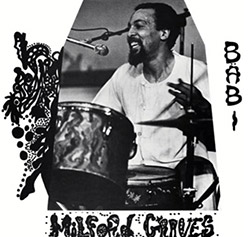
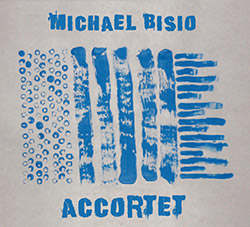
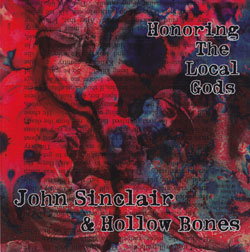

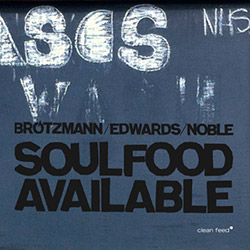




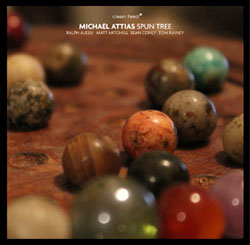
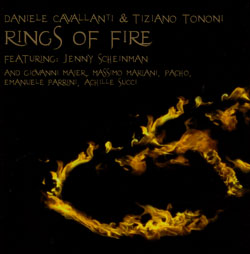
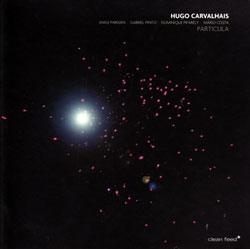
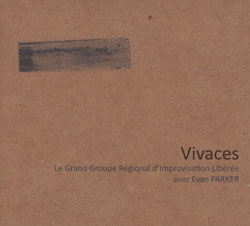
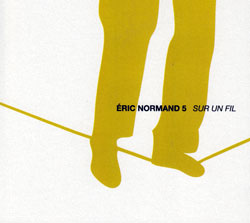
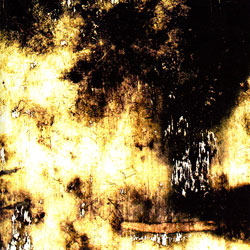
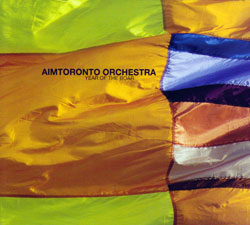
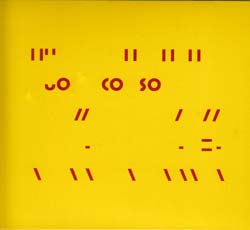
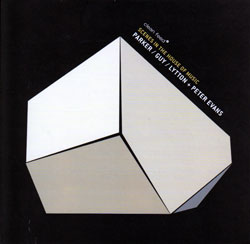
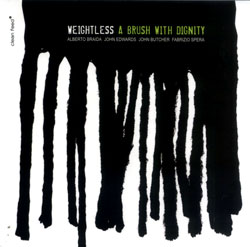
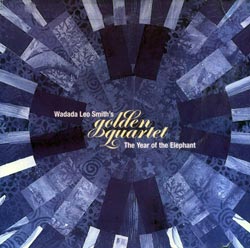

![Rodrigues, Ernesto / Nuno Torres / Guilherme Rodrigues: Whispers In The Moonlight - In Seven Movements [2CDs]](https://www.teuthida.com/productImages/misc4/35765.jpg)



![Cocks, Laura: FATHM [VINYL]](https://www.teuthida.com/productImages/misc4/36055.jpg)










![Ackerley / Prymek / Turner: All Hope With Sleeping Minds [CASSETTE]](https://www.teuthida.com/productImages/misc4/35950.jpg)
![Myers, David Lee : Tin Drop Tear [BOOK w/ DOWNLOAD]](https://www.teuthida.com/productImages/misc4/36030.jpg)



![Schindler, Udo / Sandy Ewen / Damon Smith: Munich Sound Studies Vols. 4, 5 & 6 [3 CDs]](https://www.teuthida.com/productImages/misc4/35966.jpg)






![Turbulence Orchestra & Sub-Units: Smear Out the Difficulties (Double Live) [2 CDs]](https://www.teuthida.com/productImages/misc4/36048.jpg)
![Perelman, Ivo / Tyshawn Sorey: Paralell Aesthetics [2 CDs]](https://www.teuthida.com/productImages/misc4/35871.jpg)


![Sjostrom, Harri: SoundScapes #4 Festival Berlin 2023 [3 CDs]](https://www.teuthida.com/productImages/misc4/35874.jpg)



![Glenn, Jordan: Flustered [CASSETTE]](https://www.teuthida.com/productImages/misc4/35948.jpg)


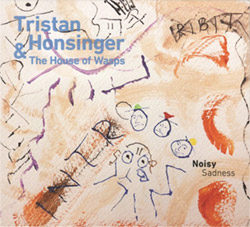
![Lindorff-Ellery, Evan: Church Recordings from Monhegan [CASSETTE]](https://www.teuthida.com/productImages/misc4/35949.jpg)
![Schindler, Udo / Werner Dafeldecker / Gunnar Geisse: Travelling Sound Images - Cognitive Transfers [Trio]](https://www.teuthida.com/productImages/misc4/35767.jpg)

![Egberth, Dennis: The Dennis Egberth Dynasty [VINYL]](https://www.teuthida.com/productImages/misc4/35549.jpg)


![Schindler, Udo / Rieko Okuda / Eric Zwang Eriksson: Disturbed Terrains [2 CDs]](https://www.teuthida.com/productImages/misc4/35330.jpg)






![Olencki, Weston : Pearls Ground Down To Powder [VINYL]](https://www.teuthida.com/productImages/misc4/35956.jpg)
![Myers, David Lee: Oculus [2CDs]](https://www.teuthida.com/productImages/misc4/35857.jpg)


![dustsceawung: dustsceawung [CASSETTE w/ Download]](https://www.teuthida.com/productImages/misc4/35753.jpg)




![Halls of the Machine: Atmospheres For Lovers And Sleepers [CASSETTE w/ DOWNLOAD]](https://www.teuthida.com/productImages/misc4/35806.jpg)



![AHC (Alexander Cooper): Lase [2 CDs]](https://www.teuthida.com/productImages/misc4/35754.jpg)



![Fagaschinski, Kai / Yan Jun : Graveyard Processions [VINYL w/ DOWNLOAD]](https://www.teuthida.com/productImages/misc4/35474.jpg)
![Brant, Cody / Carl Kruger: Smoke Detail [CASSETTE w/ DOWNLOAD]](https://www.teuthida.com/productImages/misc4/35551.jpg)








![Zorn, John / JACK Quartet: The Complete String Quartets [2 CDs]](https://www.teuthida.com/productImages/misc4/35609.jpg)

![Lonsdale, Eden: Dawnings [2 CDs]](https://www.teuthida.com/productImages/misc4/35480.jpg)







![Sanna, Claudio: Compositori Sardi Contemporanei II [2 CDs]](https://www.teuthida.com/productImages/misc4/35317.jpg)







![Zurria, Manuel: Fame di Vento [3 CDs]](https://www.teuthida.com/productImages/misc4/35167.jpg)

![Granberg, Magnus / Nattens Inbrott / Skogen: Holde Traume, Kehret Wieder! [2 CDs]](https://www.teuthida.com/productImages/misc4/35038.jpg)

![Electric Bird Noise / Derek Roddy: 8-10-22 [CD EP]](https://www.teuthida.com/productImages/misc4/35970.jpg)








![Elephant9 : Mythical River [VINYL]](https://www.teuthida.com/productImages/misc4/34624.jpg)



![Elephant9 with Terje Rypdal: Catching Fire [VINYL 2 LPs]](https://www.teuthida.com/productImages/misc4/35355.jpg)
![Deerlady (Obomsawin, Mali / Magdalena Abrego): Greatest Hits [VINYL]](https://www.teuthida.com/productImages/misc4/34876.jpg)







![Surplus 1980: Illusion of Consistency [CD]](https://www.teuthida.com/productImages/misc4/35069.jpg)
![Staiano, Moe: Away Towards the Light [VINYL + DOWNLOAD]](https://www.teuthida.com/productImages/misc4/35037.jpg)



![Caveira (Gomes / Sousa / Abras / Ferrandini): Ficar Vivo [VINYL]](https://www.teuthida.com/productImages/misc4/34643.jpg)
![Coley, Byron: Dating Tips for Touring Bands [VINYL]](https://www.teuthida.com/productImages/misc4/17906.jpg)

![Lost Kisses: My Life is Sad & Funny [DVD]](https://www.teuthida.com/productImages/misc4/lostKissesDVD.jpg)